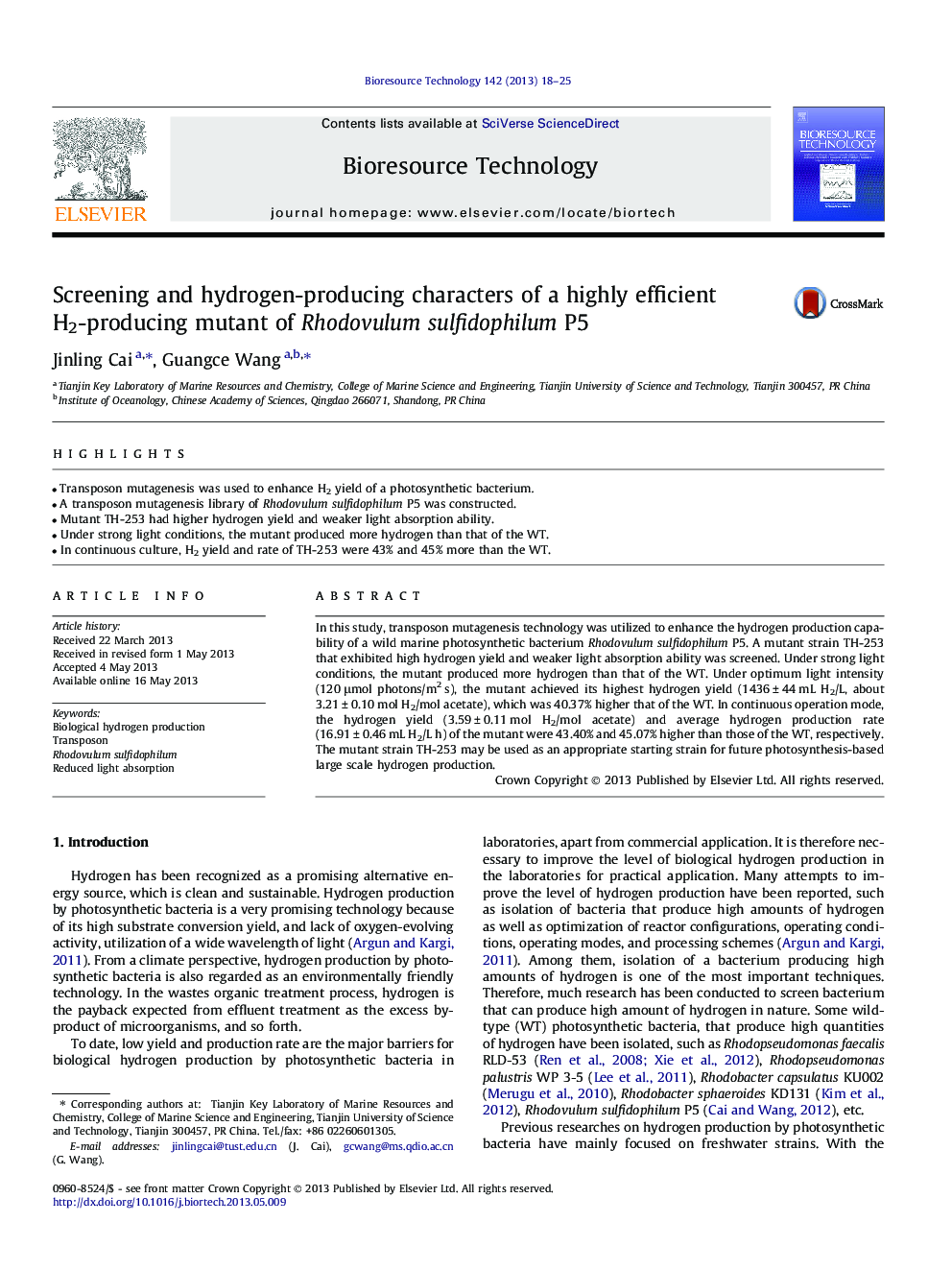| Article ID | Journal | Published Year | Pages | File Type |
|---|---|---|---|---|
| 7081846 | Bioresource Technology | 2013 | 8 Pages |
Abstract
In this study, transposon mutagenesis technology was utilized to enhance the hydrogen production capability of a wild marine photosynthetic bacterium Rhodovulum sulfidophilum P5. A mutant strain TH-253 that exhibited high hydrogen yield and weaker light absorption ability was screened. Under strong light conditions, the mutant produced more hydrogen than that of the WT. Under optimum light intensity (120 μmol photons/m2 s), the mutant achieved its highest hydrogen yield (1436 ± 44 mL H2/L, about 3.21 ± 0.10 mol H2/mol acetate), which was 40.37% higher that of the WT. In continuous operation mode, the hydrogen yield (3.59 ± 0.11 mol H2/mol acetate) and average hydrogen production rate (16.91 ± 0.46 mL H2/L h) of the mutant were 43.40% and 45.07% higher than those of the WT, respectively. The mutant strain TH-253 may be used as an appropriate starting strain for future photosynthesis-based large scale hydrogen production.
Related Topics
Physical Sciences and Engineering
Chemical Engineering
Process Chemistry and Technology
Authors
Jinling Cai, Guangce Wang,
